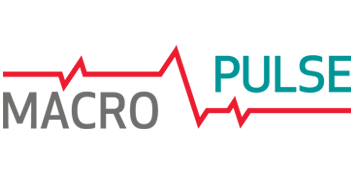
The business sentiment indicator for Polish manufacturing (PMI) dropped to 52.9 pts in July vs. 54.2 pts June, running below our forecast (54.0 pts) and the market consensus (54.2 pts). As we expected, one of the main reasons for the deterioration recorded in July in Polish manufacturing was the slowdown of employment growth. It was reflected by a 1.8 pts decrease of the employment sub-index, which resulted in a 0.4 pts decrease of the aggregate index. However the employment sub-index remained clearly above the 50 pts threshold, signaling further employment growth despite a strong barrier in the form of skilled labour shortage.
Lower subindex for output (52.4 pts in July vs. 54.1 pts in June) was another important reason for the PMI decline. Like in the case of the employment subindex, it resulted in a 0.4 pts decrease of the aggregate PMI. The visibly slower output growth was most probably related to holiday breaks in the factories of Volkswagen in Poznań, Opel in Gliwice, and Fiat in Tychy. They were conducive to a decrease in the automotive branch output in July. In August the plants will resume operations, supporting higher activity in manufacturing (production in the segment "manufacture of motor vehicles, trailers, and semi-trailers” is responsible for 13% of sold production in all manufacturing).
In our view, there are several reasons for which the short-term prospects for manufacturing activity continue to look optimistic. Firstly, the July PMI sub-indices point to ongoing increase in production backlogs and suppliers' delivery times. This means that, amid the expected by us slowdown in global trade, the increase in Polish manufacturing activity will remain moderately fast for some time, owing to the execution of earlier orders. Secondly, total new orders continued to increase in July and their growth rate has visibly exceeded the growth rate of export orders. This confirms that new domestic orders, supported by the boom in residential (households' investments) and infrastructural (public investments) construction will boost manufacturing activity in the coming quarters despite the slower growth of foreign orders. Thirdly, in our view, further moderately fast employment growth in manufacturing is a strong signal pointing to managers' optimistic view of the demand outlook. Fourthly, the final July's PMI data for German manufacturing released today indicate acceleration in export orders and total orders as well as faster output growth rate. New orders and output growth has also accelerated in the Eurozone. This points to good demand outlook in the manufacturing branches with a considerable percentage of export sales in total sales revenues.
The value of the PMI in July stood below its level in Q2 (53.8 pts). Considering the above arguments, we expect improvement in manufacturing in August which will be consistent with our forecast of economic growth in Q3 (4.8% YoY vs. 5.2% in Q2) and 5% GDP growth in the whole 2018 (see MACROmap of 30/7/2018).
In our view the July's business survey results are slightly negative for PLN and yields on Polish bonds.

